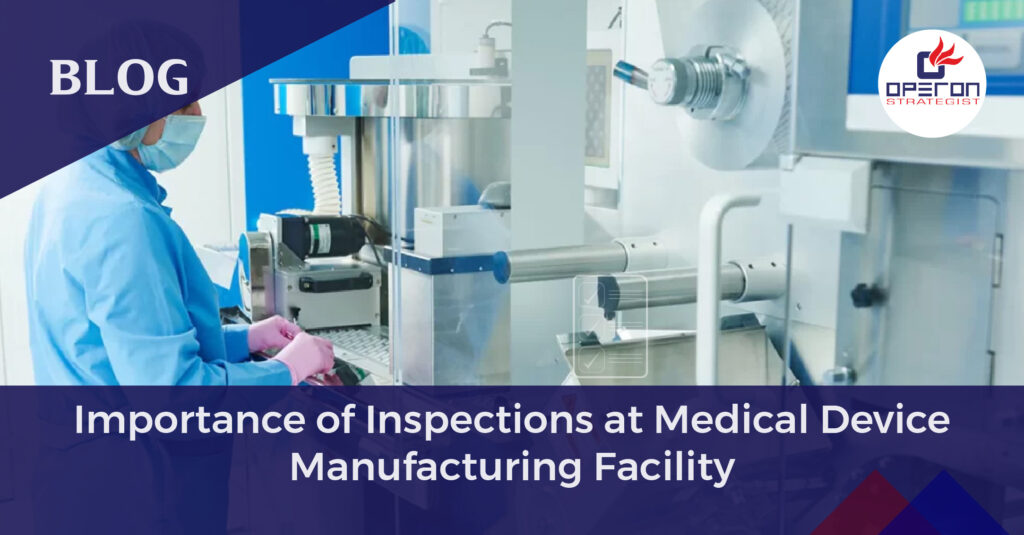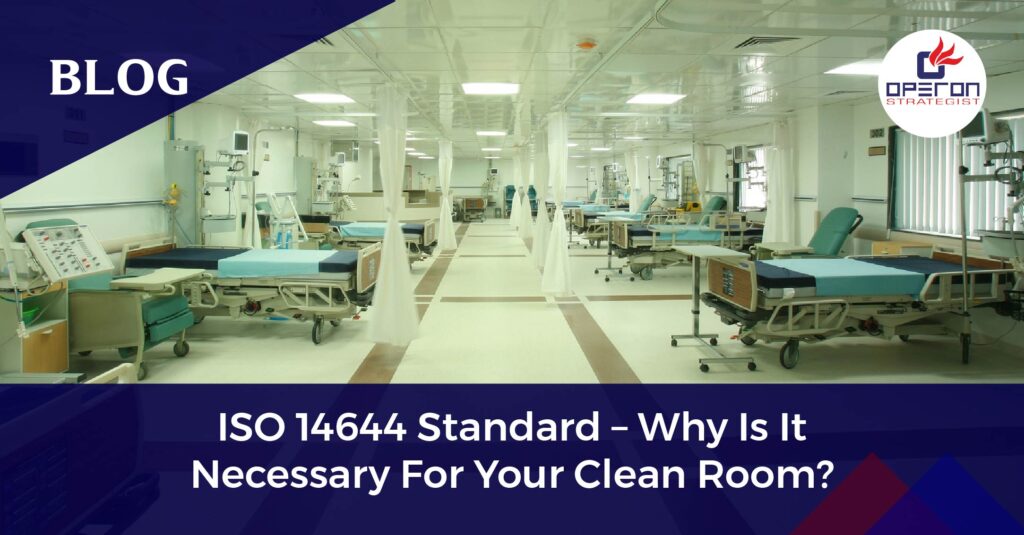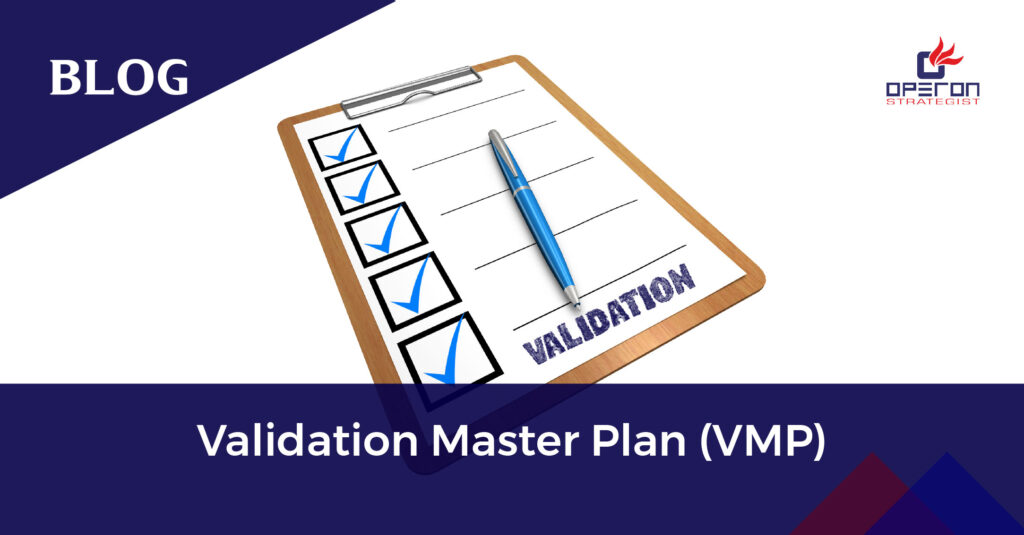With the growing healthcare industry, there is a need for more efficient and effective healthcare delivery systems. Medical devices are critical components of patient care, and it is essential to ensure that they are manufactured to the highest standards of quality and safety. Inspection is an integral part of the manufacturing process that helps to identify and correct any issues before they can affect patient health.
Continue reading to find out more about critical aspects of inspection at the medical device manufacturing facility.
What Is the Need for Facility Inspection in the Medical Device Industry?
Facility inspections are not just crucial but mandatory. For example, audits from regulatory bodies and notified bodies etc. They enable regulatory bodies and manufacturers to address any issues promptly, ensuring the production of safe and effective medical devices. Inspections also promote transparency and trust among regulatory authorities, manufacturers, and end-users.
They validate the implementation of good manufacturing practices (GMP) and ensure that facilities meet the necessary requirements for the production, storage, and distribution of medical devices. Inspections also verify the facility’s capability to consistently manufacture high-quality products.
Furthermore, These inspections also help in getting manufacturing licenses, ISO certification for the facility, cause inspection etc.
Looking for Medical Device Consultant?
Lets have a word about your project
Types of Medical Device Facilities
A Medical device manufacturing factory might differ in size, shape, processes and other requirements based on the type of medical device to be manufactured. Mentioned below are some types of medical device facilities:
- Single or multiproduct disposable manufacturing facility
- Implantable device manufacturing facility
- medical equipment manufacturers
- Software devices manufacturing facility
- In vitro diagnostic manufacturing facility(kits, reagents, chemicals)
Due to the diversity of medical device factories, each type requires a customized inspection process. The disposable medical device manufacturing industry is less critical from a patient’s point of view than the implantable medical device manufacturing industry.
How Does the Type of Medical Device Impact Facility Requirements and Inspections?
Each type of manufacturing plant layout design has specific requirements and regulations tailored to the devices it produces. This will also impact the inspection process. For instance, producing implantable devices may require a controlled environment with stringent contamination control measures, while manufacturing diagnostic instruments may require specialized calibration and testing equipment.
Inspections at different types of facilities will ensure that each facility is aligned with the specific requirements for their device categories.
For Medical Device Manufacturing Plant Layout Design
How Does an Optimized Layout Contribute to Efficient Operations and Compliance?
An optimized manufacturing plant layout design is crucial for efficient operations and compliance in a medical device facility. It involves the logical arrangement of workstations, equipment, storage areas, and material flow. A well-designed layout minimizes the risk of contamination, reduces errors, and improves productivity. Inspections assess the facility’s layout to ensure it adheres to regulatory standards, promotes safety, and enhances overall efficiency.
Significance of Clean Rooms in a Medical Device Manufacturing Facility
Clean rooms are vital in medical device manufacturing as they provide controlled environments with low levels of particulate and microbial contamination. Clean room requirements, defined by international standards such as ISO 14644, establish the cleanliness level necessary for specific manufacturing processes. Inspections evaluate the implementation and maintenance of clean room protocols to ensure product quality, sterility, and patient safety. Post installation of clean rooms, the maintenance of clean rooms to get the desired cleanliness levels is vital.
How Does Equipment Qualification Impact Product Quality and Regulatory Compliance?
Equipment qualifications are an important aspect of facility inspections. It involves verifying that equipment, machinery, and instruments meet predefined specifications and perform reliably. Qualified equipment ensures consistent product quality, reduces the risk of errors, and enhances regulatory compliance. Inspections assess the qualification processes, documentation, and maintenance of equipment to ensure adherence to regulatory standards to get desired product quality consistently.
Validation of Sterilization Processes
Sterilization is essential to ensure medical devices are free from microorganisms and safe for patient use. The validation of sterilization processes confirms their effectiveness in achieving the desired level of sterility. Inspections evaluate the validation protocols, documentation, and adherence to established procedures. Validated sterilization processes are critical for producing safe and effective medical devices to ensure patient safety.
Key Aspects Evaluated During Inspections
During inspections, various aspects are evaluated to ensure compliance with regulations and standards. Following are some of the key aspects:
- Checking of facility resources provided considering the production of desired medical devices
- Qualification of types of equipment/instruments and critical utilities
- Calibration of instruments besides all QMS documentation
How Can Operon Strategist Help You With the Inspection?
As a medical device regulatory consultancy, we understand the vital importance of inspections at a medical device manufacturing facility. Inspections are a critical component of the manufacturing process that helps to ensure patient safety, regulatory compliance, and product quality.
By prioritizing inspections and compliance, we help our clients meet regulatory requirements and improve the overall quality and safety of their products. As a trusted partner in the medical device industry, we are committed to helping our clients navigate the complex regulatory landscape and achieve success in the development and manufacturing of medical devices.




